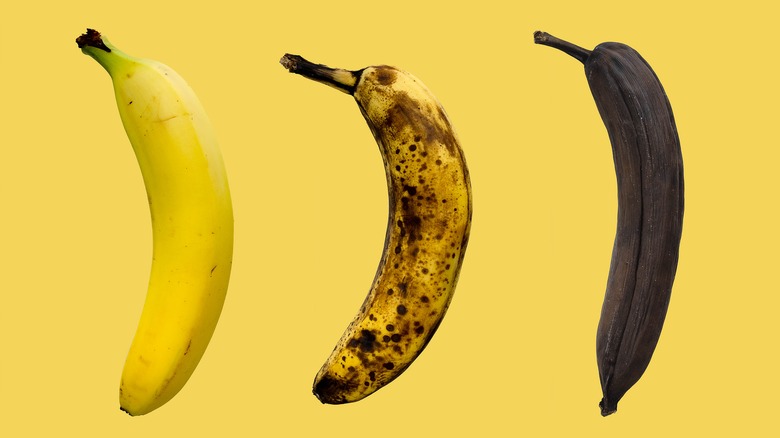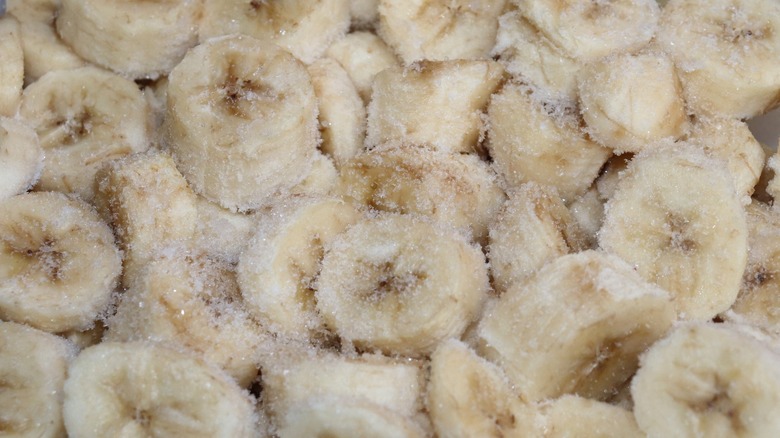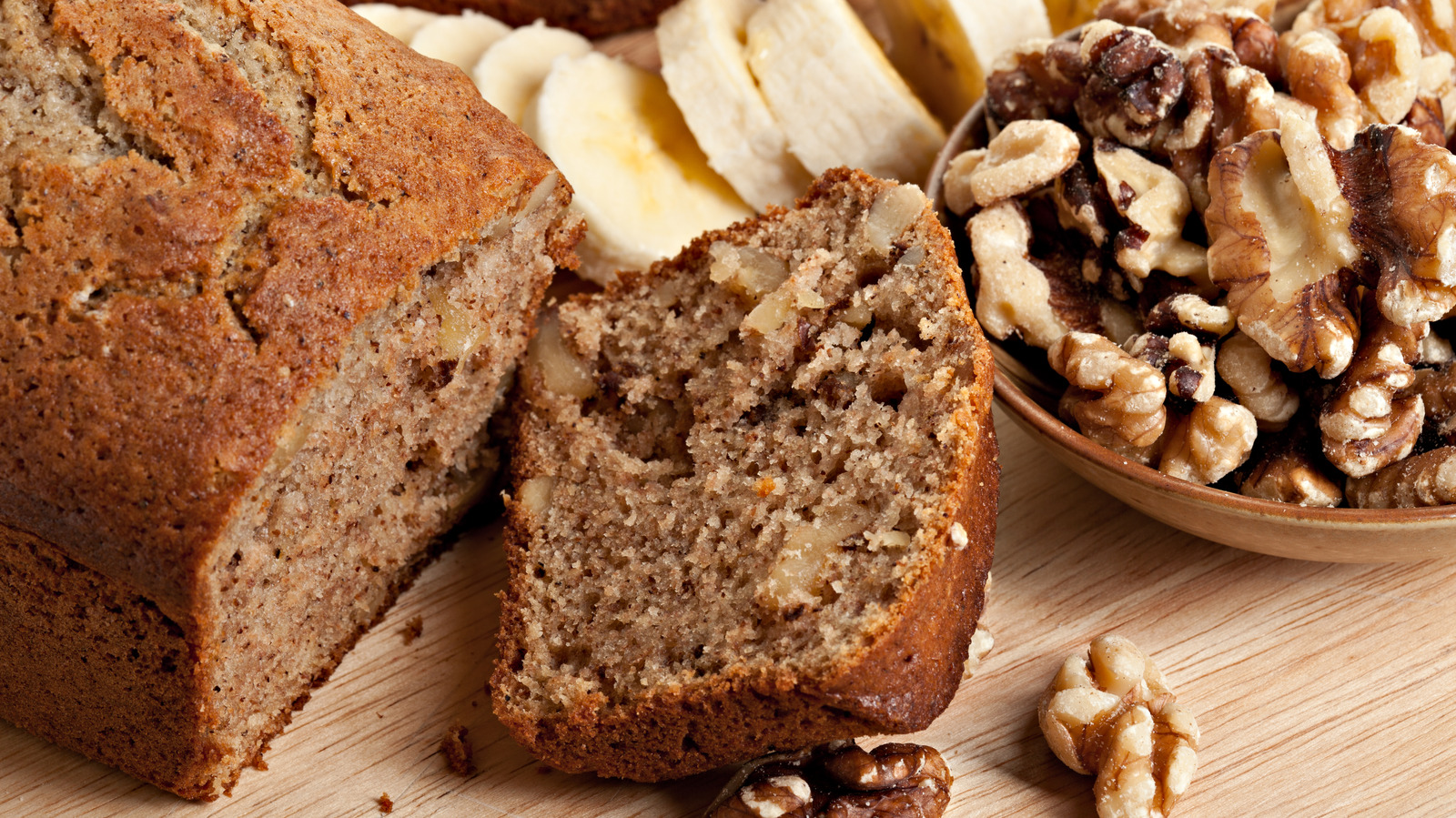No matter your level of baking skill, chances are you’ve attempted to make banana bread. You’ve also likely heard or read along the way that ripe bananas are best for the recipe. While it’s commonly believed that, the riper the fruit, the better it is for baking, not all bananas are exactly okay to use. Indeed, there is such a thing as a banana that’s too far gone even for baking. That’s why you should know just which levels of banana ripeness are actually good to use for banana bread.
Visual checks can be tricky. Bananas can go from yellow with brown spots to totally black and still be okay to eat and use for baking. In fact, black bananas are some of the best for making banana bread because they have developed more sugar as they sit around and therefore taste sweeter. They may also be moister, which is perfect for baked goods. But there is definitely a point at which bananas have gone beyond overripe and may not be entirely safe to use.
Avoid using overripe bananas that have these characteristics

While black bananas are great for banana bread thanks to the moisture they add and the sweetness they bring to the baked good, there are some other things to look for in and on black bananas before adding them to your batter. If black bananas are spotted with mold, then it’s time to step away! You absolutely should not use them for banana bread or consume them at all. At that point, it’s wise to consign them to the trash can or compost.
Another dead giveaway that bananas are too far past their prime is if they have an odd or off-putting odor, a clear indication of bad bananas. So, trust your senses and make sure you inspect these fruits carefully. Bananas that have any kind of liquid or a mushy substance leaking out of them should be discarded. Again, don’t think anything of black peels or brown spots, but do look for anything that raises red flags to your eyes and nose.
Freeze brown bananas before they go bad

Freezing bananas before they go bad is a smart kitchen hack that allows you to salvage overripe bananas for baking later. Bananas, when frozen, can last for two to three months in the freezer. To freeze bananas, peel them and cut them into smaller chunks or simply freeze them whole if you have space. It’s a good idea to individually wrap the whole bananas in plastic wrap or place sliced bananas in an airtight container to prevent freezer burn and maintain their flavor.
When you’re ready to use them, defrosting frozen bananas is a breeze. Simply remove the desired amount from the freezer, transfer them to a bowl, and let them thaw at room temperature for about two hours. Alternatively, you can microwave them briefly in 15-second intervals or use them directly from the freezer in recipes that involve blending, such as banana bread muffins. Frozen bananas are a versatile addition to your kitchen, ensuring you never waste a ripe banana again and always have the perfect ingredient for your favorite banana bread on hand.







